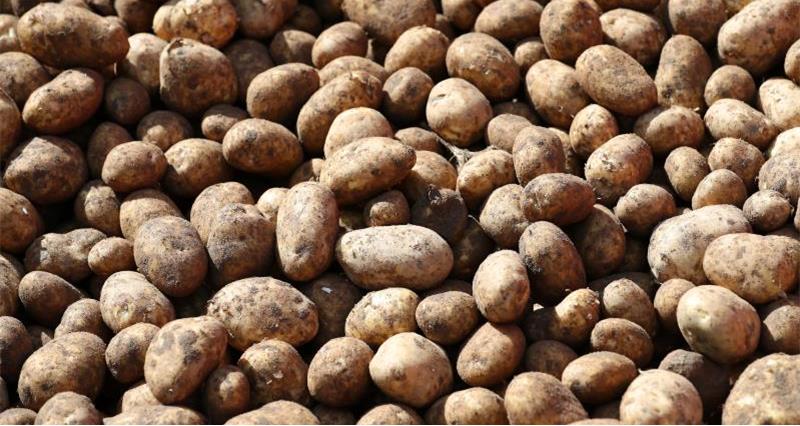As a result APHA will be stepping up its monitoring of potatoes from Poland. They have also recommend that importers think very carefully about their sourcing of potatoes. Given the heightened risk associated with countries/areas where ring rot is established, importers should consider additional biosecurity measures in the event that they do decide to import from such countries.
As a minimum, measures should include separate storage and grading, to reduce the risk of cross contamination in the event of a problem being identified. In particular possible contact between ware from Poland or other sources where ring rot is prevalent and any seed potatoes should be avoided, e.g. via storage in close proximity or by contact with equipment or machinery, such as graders. If equipment has been used, rigorous washing and disinfection procedures before it is used again is a recommended biosecurity precaution.
Inspectors will also be checking Polish potatoes in their routine surveillance and will take action in the event that such potatoes are introduced without the official certificate from the Polish Plant Health Authority. In this event, they will treat the potatoes as potentially contaminated with ring rot and will take statutory action requiring destruction of the consignment. To avoid the risk of delay or statutory action, traders and users of potatoes are encouraged to ensure that consignments of Polish potatoes are accompanied at all stages by the official certificate issued by the Polish Plant Health Authority.
A report containing a helpful summary of the current position regarding findings of ring rot and brown rot in the EU can be found by clicking here.
It highlights that most ring rot outbreaks have occurred in Poland and Romania, although there are significant numbers in some other areas (eg in Baltic countries).
The APHA also wishes to remind growers that national measures remain in force on Epitrix, requiring that potatoes from Spain must be washed before import to the UK. The only exceptions are for potatoes clearly identified as originating from the Balearic Islands, where the risk of Epitrix presence is much lower than on the Spanish mainland, and potatoes from Epitrix demarcated areas which are accompanied by a plant passport and which may be brushed free of soil rather than washed.
Whilst it is not a quarantine pest, growers should also be aware of the risk of introducing Guatemalan potato moth. It is a damaging pest to growing crops and more so to tubers in storage and can be costly to eradicate. Originating from Central and South America, it was first found in Tenerife in 1999 and is now found on several other islands in the Canaries. It was reported from several locations in Galicia in the north of Spain in September 2015. It is suspected to have been introduced on infested tubers. Although eradication measures are in place in this region care should be taken where seed and ware potatoes are sourced.
Please also remember that ware potatoes being moved within the EU (including within different parts of the UK) must be accompanied by a registration number and that seed potatoes must be certified/labelled.
The relevant import requirements are described below:
| Common Name | Origin | Requirement |
| Seed Potatoes | Poland | Pre-import notification and accompanied with official ring rot test certificate |
| Other EU | Pre-import notification and accompanied by a plant passport/official certificate; washing requirements for potatoes from Spain | |
| All non –EU countries | Prohibited, except from Switzerland where equivalent measures to those for EU countries are in place | |
| Ware Potatoes | Algeria, Egypt, Israel, Libya, Morocco, Syria, Tunisia and Turkey, Akkar and Bekaa regions of Lebanon | Phytosanitary Certificate |
| Poland | Pre-import notification, accompanied with official ring rot test certificate and registration number | |
| Portugal, Romania and any part of Spain which is within the European Union | Pre-import notification and accompanied by a registration number; washing requirements for potatoes from Spain | |
| Other EU countries (including within the UK) and Switzerland | Accompanied by registration number | |
| Other non-EU countries | Prohibited |
